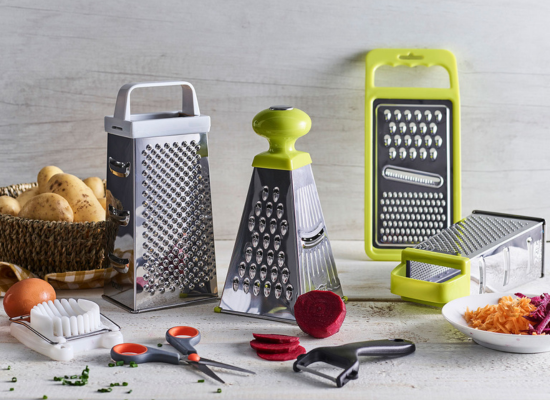
If you have been leaving your butter on the counter to keep it ready to use instantly, then you might also be worried about it going bad.
Butter can last for a while as long as it is stored properly. However, there are some instances where butter can go bad.
Can butter go bad?
Yes, it can. Butter is a dairy product, and all dairy products have the potential to go bad. Exposure to air, heat, or contaminated utensils is the main reason butter can go bad. It can also go bad if not stored properly.
Keep reading to learn more about the different ways to store butter, how to prevent it from going bad, and what to do if you have rancid butter.
Vulnerability of Butter to Go Bad
Butter is made by churning milk or cream until it separates into buttermilk, which is mostly liquid, and butterfat, which is mostly solid.
Butter can go bad because it is a dairy product. Dairy products are highly perishable, and butter is no exception. But butter is less likely to go bad than other dairy products.
The high-fat content in butter makes it susceptible to oxidation. Oxidation is a chemical reaction that causes the fats in butter to turn rancid. Rancid butter will have a sour smell and a bitter taste.
Due to its high-fat content and low water content, butter is less likely to facilitate bacterial development than other forms of dairy products.
This is especially the case if the butter has been salted, which reduces the water content, even more, making the environment uninhabitable for bacteria.
According to the US Food and Drug Administration (FDA), whereas most germs can survive unsalted butter, only one type of bacteria can survive salted butter.
Because of its high-fat content, butter stands out among dairy products. The high-fat content makes the butter so thick and spreadable.
When refrigerated, the butter becomes hard and unspreadable, so some people keep it on the counter, making it susceptible to going bad.
Reasons for Butter to Go Bad
The main reasons for butter to go bad are exposed to air, heat, or contaminated utensils.
Air
Butter is a dairy product and contains milkfat. Milk fat is made up of triglycerides, which are a type of fat.
Triglycerides are susceptible to oxidation, which is a chemical reaction that causes the fats in butter to turn rancid. The process of oxidation is accelerated by exposure to oxygen, light, or heat.
When butter is exposed to oxygen, the triglycerides are broken down into smaller molecules called free fatty acids.
The free fatty acids are then converted into compounds that have a sour smell and a bitter taste. This is what we know as rancid butter.
Butter that isn’t maintained in an airtight container has a higher chance of becoming moldy.
Heat
When your butter is exposed to heat, it is far more likely to become moldy. The first reason is that heat encourages mold growth, allowing it to spread and spread more quickly.
And when butter is heated, it softens. This helps the mold to permeate the butter more deeply.
Contaminated Utensils
If you use a contaminated utensil to scoop out your butter, it can introduce bacteria that will cause the butter to go bad.
Also, if you store your butter in contaminated utensils, it can cause the butter to go bad.
LEARN MORE: Can You Use Sour Cream Instead of Milk?
Shelf Life on the Counter
If you store your butter properly, it can last for several weeks on the counter.
Butter can last on the countertop for up to two weeks if it is stored in a cool, dry place. The ideal temperature for storing butter is below 70°F (21°C).
Butter can last even longer if it is stored in a food-grade airtight container. The container should be made of glass or ceramic, plastic is usually not recommended.
Freshness is maximized by keeping butter in the refrigerator while putting it out on the counter keeps it soft and spreadable for immediate use.
Regular, salted butter can be kept out on the counter as long as it is protected from heat, light, and air.
According to the Dairy Good website of the National Dairy Council, depending on the type of butter, it’s fine to leave the butter out on occasion. When compared to unsalted butter, salted butter has a lower risk of spoilage on the counter.
LEARN MORE: Can You Use Pasta Sauce for Pizza?
Shelf Life in the Fridge
If you store your butter properly, it can last for several months in the fridge. Refrigeration slows down the oxidation process.
As a result, it is typically recommended that butter not be left out for more than a few days or weeks to preserve it at its freshest.
Butter can last in the fridge for up to 4-9 months if it is stored in a cool and dry place. The ideal temperature for storing butter is below 40°F (0°C).
To avoid bacterial growth, store unsalted, whipped, or raw, unpasteurized butter in the refrigerator.
Because the risk of bacterial development is so low, it is not necessary to refrigerate salted butter. According to research, butter has a long shelf life, even when stored at room temperature.
LEARN MORE: What To Serve With Chicken Provencal?
Signs Your Butter Has Gone Bad
If your butter has gone bad, you will notice some signs.
- The most common sign is that the butter will have a layer of mold on its surface.
- The color of the butter will have a yellow or green tint.
- The texture of the butter will change. Rancid butter will be hard and crumbly.
- The smell of the butter will change. It will have a sour smell.
- The flavor of the butter will be sour to bitter.
Tips to Prevent Butter From Going Bad
To prevent the butter from going bad, you can take some steps.
- Keep only a small portion of it out on the counter. Refrigerate or freeze the remainder for later use.
- Use an opaque container or a closed cabinet to keep it out of the light.
- It should be stored in an airtight container.
- Keep it out of direct sunlight, the stove, and other heat sources.
- Only keep butter out of the fridge if the room temperature is between 70 and 77 degrees Fahrenheit (21 and 25 degrees Celsius).
- The use of a French butter keeper can help to keep butter fresh.
- Freeze your butter if you do not use it very often.
- Wrap butter tightly in heavy-duty aluminum foil or plastic wrap before freezing it, or use a heavy-duty freezer bag. This will prevent your butter from absorbing scents and flavors from other foods in your freezer.
LEARN MORE: What to Serve with Chicken Mole?
How to Store Butter?
Butter can be stored in a few ways. It can be stored in the fridge, freezer, or pantry. The best way to store butter is in the fridge.
- To store butter in the fridge, you can keep it in its original packaging or wrap it tightly in heavy-duty aluminum foil or plastic wrap.
- You can also store butter in an airtight container in the pantry or counter.
- You can also store butter in a freezer bag.
- Use a French butter keeper to keep your butter fresh and soft.
LEARN MORE: What To Serve With Buffalo Chicken Meatballs?
How to Use Butter That Is Moldy?
If your butter has gone bad, you can still use it to some extent. Though it is officially recommended by FDA, any butter with mold on it should be discarded.
Their advice should be taken seriously, but if it hurts to waste a large amount of butter for a small amount of visible mold, you can cut out the moldy parts.
The areas that are affected by mold need to be generously cut out while keeping enough space between the good and moldy parts.
After cutting out the moldy parts, transfer the butter to a new, clean container and throw away the old wrapping. Use the butter as soon as possible before the spread of any more mold.
LEARN MORE: What Does Chicken Provencal Taste Like?
Can I Eat Expired Butter?
However, consuming rotten butter carries some hazards. Mycotoxins are harmful chemicals released by molds. Allergies and respiratory difficulties are possible side effects.
Moldy butter is also highly likely to be rancid, which implies it has gone bad completely. If you try to cook with rotten butter, it will not only taste awful, but it will also ruin any recipe.
LEARN MORE: Are Microwaved Potatoes Healthy?
Conclusion
Butter can go bad, but it takes a while. The shelf life of butter at room temperature is one to two weeks. If your butter has gone bad, you can tell by the mold, color, texture, smell, and flavor.
You can prevent the butter from going bad by storing it in the fridge, freezer, or pantry. If your butter is moldy, you can cut off the mold and use the rest.
However, if you are a little careful and preventive, it is possible to keep your butter from going bad and you can use it safely for a long time.




Share and get 15% off!
Simply share this product on one of the following social networks and you will unlock 15% off!